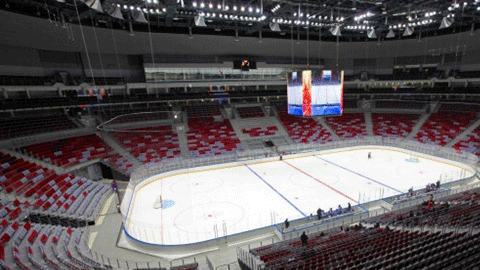[su_heading]After an action-packed tournament in Sochi, learn why the NHL probably won’t send their players to the Olympics in 2018[/su_heading]
As a hockey fan it truly hurts me to write this article, but the facts are the facts.
Since the 1998 Nagano Olympics, the National Hockey League has allowed international teams to borrow their players to compete in the Olympics while shutting down league operations for a couple of weeks.
The participation of the world’s best has created lasting hockey memories that those Canadians lucky enough to witness will never forget—a heartbreaking loss at the hands of Czech goalie Dominik Hasek in Nagano, the end of a 50-year Canadian gold medal drought in Salt Lake City, a crushing defeat to the pesky Swiss in Torino, the golden goal that restored all that was right in the hockey world in Vancouver, and most recently, one of the best defensive performances in hockey history to reclaim gold in Sochi.
Regardless of your homeland, there is no doubting the partici-pation of NHL players has significantly increased the appeal of Olympic hockey for all fans.
[su_divider]
But at the end of the day, the NHL is a business, and like any business, its goal is to earn as much money as possible.
A great way to do so would be to grow the game globally, which was the original reason behind the NHL sending players to the Olympics. The more hockey fans around the world, the more markets the NHL has to exploit.
But other than the possibility of expanding the game into foreign markets, which has happened very little since 1998, there just aren’t many positives the NHL takes away from sending their players to the Olympics from a business perspective.
[su_pullquote align=”right”]On average, the NHL will play somewhere around 100 games in a two-week time span during any given season. When they have to shut down for an entire two weeks, a lot of games have to be crammed into the schedule some other time. [/su_pullquote]
Cramming the schedule means having many back-to-back games on weeknights. This is a financial burden for teams in some smaller markets, where it is difficult to fill arenas even on a Saturday night.
Although restructuring their schedule is certainly a concern, there are much more pressing issues at hand that make me wonder if the NHL will send their players to the 2018 Olympics at all.
For one thing, it makes no sense for the NHL to completely shut down when the playoff races are just beginning to get interesting.
On top of that, the winter Olympics take place at a time in the year when it is just the National Basketball Association, college basketball, and the NHL dominating the sports world. With no competition from football or baseball, the two most popular sports in the United States, the NHL has the chance of capturing the attention of casual sports fans looking for their sports fix on a Wednesday night.
And even though the Olympics can increase the popularity of the game globally, the NHL still has ways to go in the southern States to make the game as popular as it has become in the north.
The NHL is not even giving up their TV time to the Olympic hockey games. These past games carried a nine-hour time difference between eastern Canada and Sochi.
All of the games were done by 2:30 p.m. and left hockey fans drooling for more until the next day.
Why would the NHL not jump at the opportunity to turn casual Olympic hockey fans who watch solely for the flag on the jersey into NHL fans by offering a game in prime time when everyone is sleeping in the Olympic Village half way across the world?
The final and most obvious reasons for the NHL to not send their players is that they receive no revenue at all for supplying the entire Olympic tournament with the best hockey players in the world.
The NHL shuts their league down and lends their best, but inevitably players are going to get hurt, and unfortunately, in Sochi, injuries became a key storyline throughout the tournament. Everyone knew injuries could be the one factor to end all NHL participation in future Olympics, and unfortunately the major injuries endured in Sochi may have been the final straw.
Once again, money is the main concern with injuries. NHL general managers need their best players on the ice if they want to make any sort of a playoff run, and playoff runs equal big money for all parties involved. The risks outweigh the benefits when there’s a chance that a bunch of your best players will come back from the Olympics injured.
[su_pullquote]I’m not supporting the NHL dropping out of the 2018 Olympics, but the writing is on the wall. In the event that the NHL does pull out, fans should not be angry, but feel blessed we were able to witness five Olympic tournaments that were truly the best of the best in hockey.[/su_pullquote]
The NHL will likely endorse a World Cup of hockey like the ones held prior to Nagano, and we will still get to watch a competition between the best each country has to offer.
Obviously losing NHL players will be disappointing, but I predict if it’s a bunch of amateur kids wearing the maple leaf in 2018, our affection for Olympic hockey will die hard as we flock to our TVs at 5 a.m. to watch our boys play.
Ryan McCabe
Sports and Health Editor
You shouldn’t expect the NHL to go to South Korea




